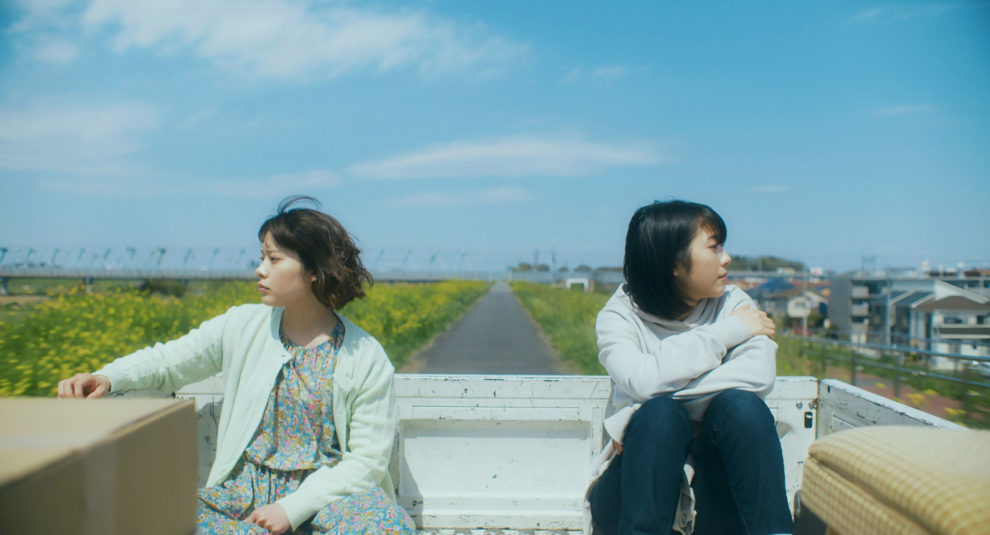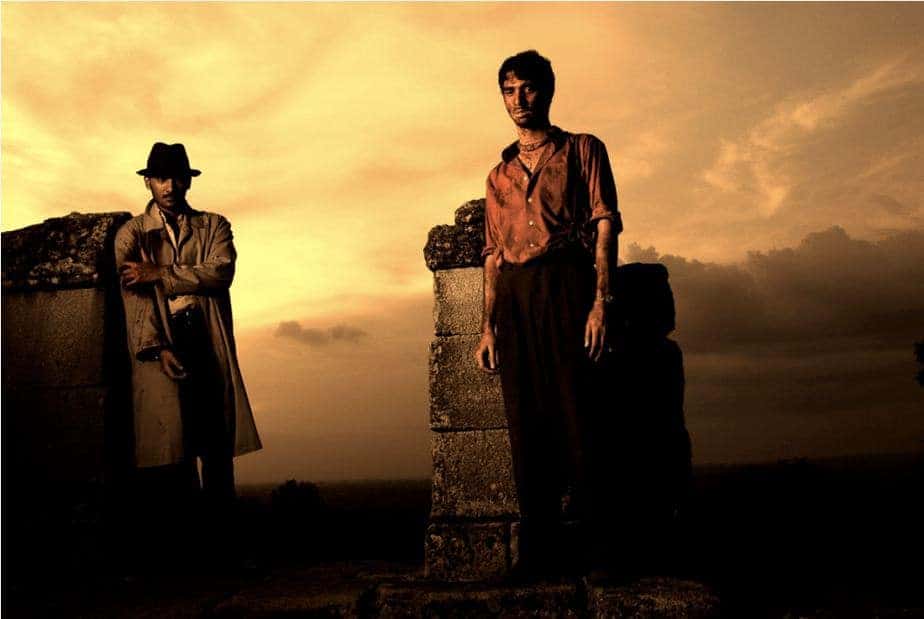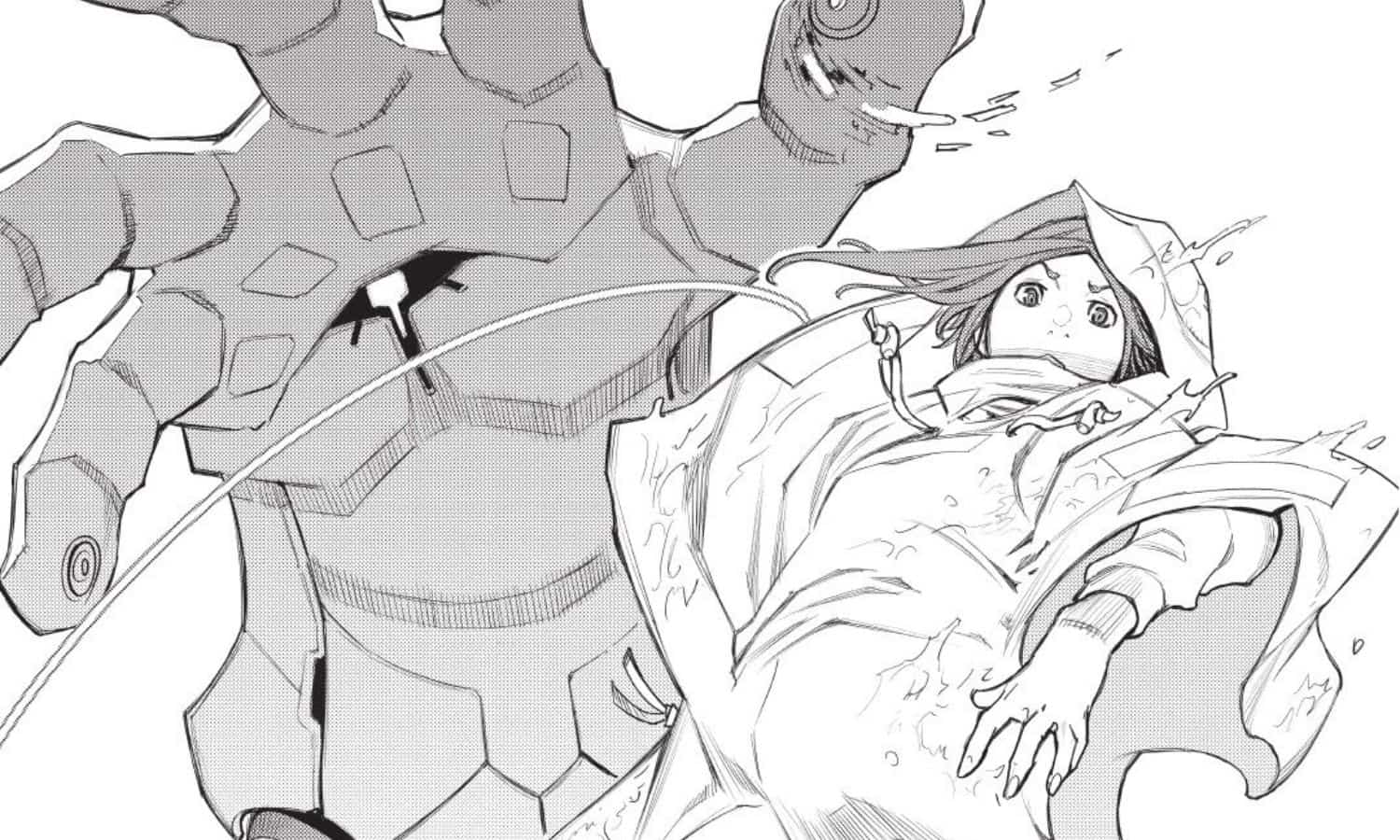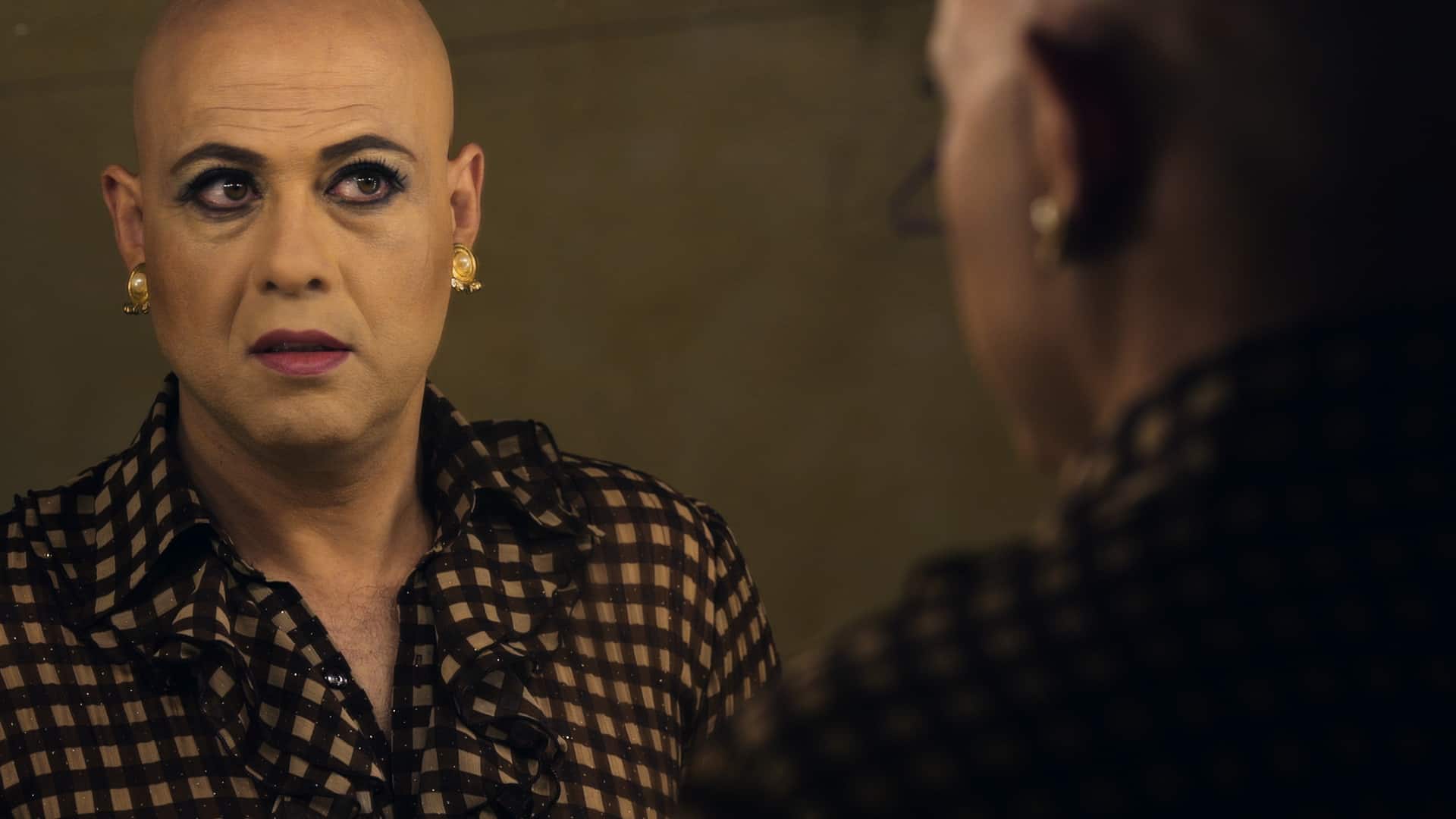Young yet prolific director Ryutaro Nakagawa presents his 12th directorial work “One Day You Will Reach the Sea”, an ambitious multi-layered project, based on a novel by Ayase Maru, where the pain of an individual merges with the one of an entire nation. The film is introduced by a delicate dreamy animation that sets the mood without giving away too much of what will follow.
“One Day You Will Reach the Sea” is screening at Nippon Connection
Three years after the death of her best friend Sumire (Hamabe Minami), Mana (Kishii Yukino) is summoned by Sumire's ex-boyfriend Atsushi (Sugino Yosuke); it is time to empty the flat they once shared, go through the boxes with Sumire's stuff and decide what they would like to keep. Together they will bring the rest back to her mother. It must be done, it's something Mana has been postponing for too long in a very understandable form of denial, part of the difficult grieving process. In one of the boxes, Mana finds the video camera Sumire used to carry everywhere with her, building up her own video diary, and decides to keep it; will she find the courage to watch it? The few other little objects she finds trigger a flood of memories and the film dissolves into a long flashback.
They had met at the opening day at university, where freshmen are supposed to mingle and make friends while joining clubs. It was a hard time for shy Mana and Sumire – so different, beautiful and self-confident – immediately caught her attention. Later that day, Sumire would rescue Mana from an embarrassing end of the day and that gesture would seal a long-lasting friendship between the two. In the following years, their rapport had grown and matured; Sumire had moved in with Mana when the conflicts with her mum had become unbearable and after a while she had left, to share a flat with Atsushi. An ordinary life, an ordinary coming of age, a special friendship, a blossoming love. Until tragedy strikes.
The film takes its time to reveal the circumstances of Sumire's death and instead it lingers for a long time over the feelings and the delicate dynamics between the two young women through their different perspectives. Their characters develop in front of us, one in the reflection into the other. In fact, after Mana's flashbacks, the story is reversed and told from Sumire's perspective, from that special day of their encounter at the University opening onwards.
Mana's story and her grieving process – or at least the initial struggle with it – has the extensive rich quality of reflecting the painful impossibility of closure that events like natural disasters can bring with them. The earthquake and tsunami that on the 11th of March 2011 hit northern Japan caused nearly 20,000 deaths. Nearly 2,500 people are still missing, their bodies have never been found and probably never will. Many parents, children, friends of victims around Japan still struggle to overcome the initial stages of grief and reach the point of acceptance and hope. Natural calamities (and the recent pandemic is one of them) rob people of the opportunity of a final farewell, stripping the victims of their dignity and exacerbating the grief of the people left behind. However, “One Day You Will Reach the Sea” is permeated by a very Japanese sense of acceptance and empathy with nature, that “mono no aware”, so intrinsically linked with Japanese life.
The pathos is strong and the noble scope of the film in honouring the victims of the tsunami is sincere and deeply and strongly felt. However, the two-hour running time has an impact on the whole perception, making it less fluid than it could have been. Even when the story is narrated from Sumire's viewpoint, no unknown events are revealed in reality, and consequently, the whole exercise feels a bit like a repetition. Moreover, a suicide subplot is rather irrelevant for the narrative; the director has revealed that his starting point for the film was the desire of talking about the suicide of a dear friend and his feelings about it. His anguish is properly channelled in Mana's grief, but obviously the script has taken a different direction and the suicide episode feels like a forced addition.
One interesting theme that emerges from the characters' arcs in “One Day You Will Reach the Sea” is the impossibility to truly know the people around us, even the closest ones, and the multiplicity of the points of views add poetic emphasis on that. Mana, watching the footage from Sumire's videocam is almost an out of body experience, and the stolen images of her unaware self, recall the false mirror reflection of Magritte's “Not to Be Reproduced”.
In the final section of the film, Mana gets up her courage and, in the company of a kind-hearted colleague, sets off on a journey to the sea, to Tohoku, the place where Sumire had disappeared. The film becomes documentary, when Mana joins a community event, filming the (real) accounts of the of the victims' relatives. A collective sense of serene resignation emerges from it, and Mana befriends a young daughter of a victim, a girl in whose eyes Mana is maybe looking for Sumire. The sea gives and takes; from the very shore where Sumire's life had been violently taken away, Mana starts a changed, new life.

















